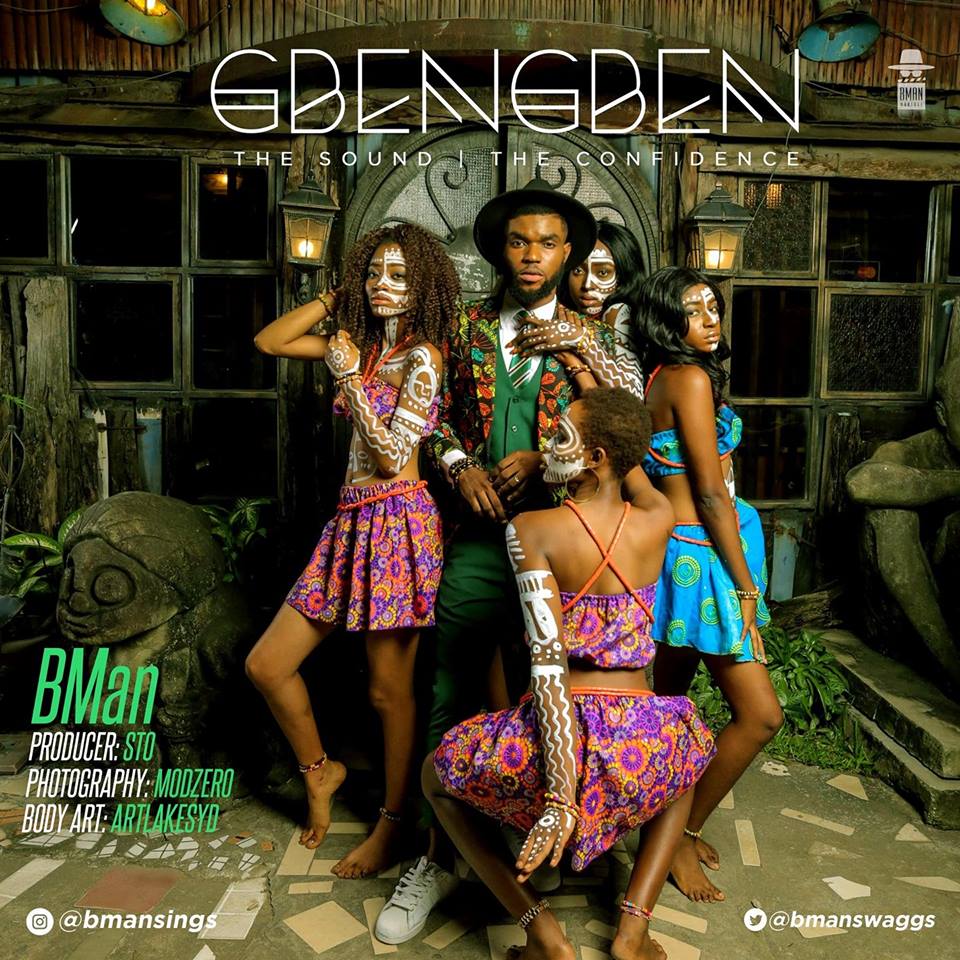Challenging societal ills through music
My new song Emeka was inspired by events and people close to me. Two of my friends died due to a drug overdose. In fact, I still have vivid recollections of that Sunday morning when a mutual friend told me that our friend had died the night before. I felt I had to do something to help, at the very least, increase awareness of the dangers of drug addiction and abuse. Emeka was the actualisation of this desire to do something.
BMan's single Emeka explores the subject of drug abuse
It is easy to lay your hands on drugs on the streets of Lagos; it even bestows some sort of street credibility. You go to parties and there are pills. It’s become so normal such that those who do not take them are seen as naïve and weak. You are sarcastically referred to as a religious person.
I have been asked: “you are doing afrobeats; you don’t smoke; you don’t drink; what is giving you the inspiration?” I reply: "talent is talent". If one also considers that people are losing loved ones from abusing drugs like codeine and tramadol, the obvious conclusion is that these harmful substances need to be taken off the streets.
The essence of music is to empower
Songs like Emeka are the kind of music that I want todo. They are also the kind of music that lasts.The essence of music is to empower people; music is a very powerful tool andshould pass a message.
That is what Fela did before he died, and a lot of people have continued that tradition. But these artistes and kind of music are no longer in vogue. You only need to switch on a pop music channel to see what I mean. It is the same content: ass, boobs, money and cars. This is clearly not the tradition that was left by people like Fela.
I don’t leave the blame solely at the feet of the artistes; the consumers also play a crucial role in this state of affairs. I am not advocating that club bangers or dance music should not be produced, just that artistes should also consider, what I like to refer to as, conscious music. There has to be more to music than dance, pop champagne, and spraying money.
How Cum explores teenage love, pregnancy, and denial
Reflecting this philosophy in my own music
I try to reflect this philosophy in my own songs by channelling them towards a societal issue: politics, life, women, men. Davido, Tekno or any of the more prominent afrobeats artistes have their own crafts, and while there is nothing wrong with their crafts, it is not the kind of music I want to be known for. Everyone is different and diversity in the music industry is a great thing.
I want people to be able to say: “your music inspired me,” and there have been a couple of stories that show I am on the right path. There was a friend of mine who was being duped. He invested most of his savings in a business with a friend who absconded with the money to Dubai. He almost committed suicide. He told me he listened to one of my songs and that was one thing that made him change his mind. Another friend told me how another song made him cry because he could relate with the experiences evoked in it.
These are the kind of stories that make me continue making the kinds of music that I do—songs with powerful messages that will make people reflect on their lives.
I have a lot of songs I am currently working on. I am writing one on religion—I am sure when it comes out, it’s going to cause a lot of controversies. I am writing about suicide which is becoming a trend in Nigeria now. Suicide is not an African thing. Africans don’t commit suicide. We fight. But these days I think people are taking the easy way out. I am writing a song about government and amenities. I am writing about a lecturer who is being molested and because he is a married male lecturer, he doesn’t know what to do because no one will believe him. It’s usually the other way around.
On my sound cloud is a song titled Husband Material. I noticed that girls these days do not want any struggles, they want someone who is made. Sometimes, they end up in very bad situations because they follow the guy with the big car, the guy with the comfortable house, the guy who might end up molesting them. The song was inspired by my own personal experience with my girlfriend at the university. The only issue we had then was that she was trying to get married to me and I was not ready. There is the part of the song where I said: you dey shakara, you no know this boy na bigie man o. It is a way of saying to people that the fact that the guy is not rich now does not mean he is not working hard. He can be husband material. You can join forces and do what you want to do together.
Husband Material explores materialism and impatience in young relationships
Early days and the future
I have been in music since my high school days. My first time in a studio was in 2006. I formed a group with a couple of friends in 2007 called the Mouthpiece. We broke the group because of finances—we couldn’t afford studio fees, videos etc. When I got into the university, I met some producers and started recording songs. My first song was a cover of MI’s Africa Rapper Number 1. Since then, I have been getting better at my craft: improved my vocals, harmony with my backups etc.
I studied music, joined a local choir and listened extensively to the music of several people I look up to in the industry: Brymo, Black Magic, Burna Boy, Fela. I sang my afrobeats song titled Nothing, I saw the favourable reception it received and how much people loved it. They complimented my sound and my voice texture. I did a couple of songs like that and this became my sound.
Burna Boy''s Heaven's Gate Cover
I love music; it is a way of expressing myself. If I don’t do music, I will be depressed. I know that my music is still at the stage of getting my name out there, but I have great hopes that soon I shall be making music with legends like Burna Boy and Wizkid, have my own live shows in Nigeria, the UK, South Africa etc. I look forward to my music being used in campaigns, for instance, against drug abuse and to running my own label that will encourage budding artists interest in conscious music.
Kingsley Mbilitem (Bman) is an independent Nigerian artiste based in Lagos, Nigeria. His songs, including his latest single Emeka, can be found on his channels: Bmansings (YouTube) and Bman (SoundCloud).

